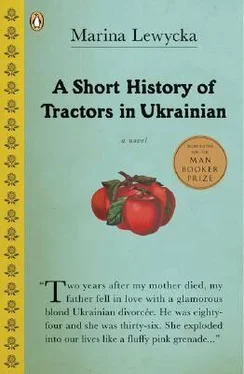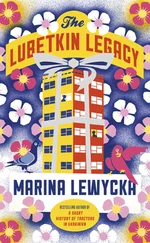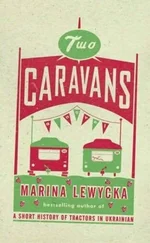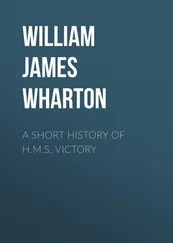“Pappa, what is this?”
“This is our journey. Ukraina to England.” He traces the line backwards. “Same journey, other direction.” His voice is laboured, croaky. “Look, here in south near Stuttgart is Zindelfingen. Ludmilla was working in Daimler-Benz assembly. Ludmilla and Vera stayed here nearly for one year. Nineteen forty-three.”
“What did they do there?”
“Milla’s job was to fit fuel pipe to aircraft engine. First-class engine but somewhat heavy in the air. Poor lift-drag ratio. Poor manoeuvrability, though some interesting new developments in wing design were just…”
“Yes yes,” I interrupt. “Never mind about the aircraft. Tell me what happened in the war.”
“What happened in war? People died-that is what happened.” He fixes me with that stubborn clenched-jaw look. “Those who were bravest perished first. Those who believed in something died for belief. Those who survived…” He starts to cough. “You know that more than twenty million Soviet citizens perished in this war.”
“I know.” And yet the number is so vast it is unknowable. In that measureless ocean of tears and blood, where are the landmarks, the familiar bearings? “But I don’t know the twenty million, Pappa. Tell me about you and Mother and Vera. What happened to you after that?”
His ringer moves along the pencilled line.
“Here, near Kiel, this is Drachensee. I was some time in this camp. Building boilers of ships. Ludmilla and Vera came near end of war.”
Drachensee: there it sits on the map, shameless, a black dot with red lines of roads leading from it, as though it were any other place.
“Vera said something about a correction block?”
“Aha, this was an unfortunate episode. Caused entirely by cigarettes. I have told you, I think, that I owe my life to cigarettes. Yes? But I have not told you also that I almost lost my life through cigarettes. Through Vera’s adventure with cigarettes. Lucky that war ended then. British came just in time-rescued us from Correction Block. Otherwise we surely would not have survived.”
“Why? What…? How long…?”
He coughs for a moment, avoiding my eyes.
“Lucky also that at liberation we were in British zone. Another piece of luck was Ludmilla’s birthplace, Novaya Aleksandria.”
“Why was that lucky?”
“Lucky because Galicia was formerly part of Poland, and Poles were allowed to stay in West. Under Churchill-Stalin agreement, Poles could stay in England, Ukrainians sent back. Most sent to Siberia -most perished. Lucky that Millochka still had birth certificate, showed she was born in former Poland. Lucky I had some German work papers. Said I came from Dashev. Germans changed Cyrillic to Roman script. Dashev Daszewo. Word sounds like same, but Daszewo is in Poland, Dashev is in Ukraina. Ha ha. Lucky immigration officer believed. So much luck in such a short time-enough to last a lifetime.”
In the dusky light of the forty-watt bulb, the lines and shadows of his wrinkled cheeks are as deep as scars. How old he looks. When I was young, I wanted my father to be a hero. I was ashamed of his graveyard desertion, his flight to Germany. I wanted my mother to be a romantic heroine. I wanted their story to be one of bravery and love. Now as an adult I see that they were not heroic. They survived, that’s all.
“You see, Nadezhda, to survive is to win.”
He winks, and the scar-wrinkles at the corners of his mouth and eyes crease with merriment.
After Father has gone to bed, I telephone Vera. It is late, and she is tired, but I need to talk. I start with the easy stuff.
“The baby is beautiful. It’s a girl. They called her Margaritka after Mrs Thatcher.”
“But did you find out who the father is?”
“Dubov’s the father.”
“But he can’t be…”
“No, not the biological father. But he’s the father in every way that matters.”
“But didn’t you find out who the real father is?”
“Dubov is the real father.”
“Really, Nadia. You are hopeless.”
I know what she means, but after I saw the way Dubov wielded that baby-bottle, I lost interest in the biological paternity. Instead I tell her about the pink lacy baby clothes, the elasticated loop-under-heel slacks, the last boil-in-bag supper. I describe the way they hoisted the non-electric cooker on to the roof-rack, and how everybody cheered. I reveal the secret of the seventeenth patent.
“Really!” she exclaims from time to time as I talk, and I keep wondering whether I will dare to ask her about the Correction Block.
“I can’t get over how lovely the baby is. I thought I would hate her.” (I had imagined that when I looked into the cot, I would know who the father was-that her corrupt progeniture would shine in her face.) “I thought she would be like a miniature version of Valentina, a thugette in nappies. But she’s just herself.”
“Babies change everything, Nadia.” There is a scuffling sound on the other end of the phone, and a slow intake of breath. Vera is lighting a cigarette. “I remember when you were born.”
I don’t know what to say, so I wait for her to follow up the remark with some reminiscences, but there is a long sigh as she exhales, then silence.
“Vera, tell me…”
“There’s nothing to tell. You were a beautiful baby. Let’s go to bed now. It’s late.”
She doesn’t tell me, but I have already worked it out.
Once, there was a War Baby and a Peacetime Baby. War Baby was born on the eve of the greatest conflict the world has known, into a country already ravaged by famine and choked in the mad grip of a paranoid dictator. She cried a lot, because her mother had little milk to give her. Her father did not know what to say to her, and didn’t say much. After a while he left. Then her mother left too. She was brought up by an elderly aunt who doted on her, and whom she grew to love. But when the war broke out, the industrial town where her aunt lived was too dangerous, so her mother came to fetch her, and took her to a village to stay with her father’s parents, where she would be safe. She never saw her aunt again.
War Baby’s paternal grandparents were an eccentric elderly couple, with strict ideas of how children should be raised.
They also had care of their daughter’s child, a chubby rollick-some little girl called Nadezhda, a couple of years older than her cousin, whose parents lived in Moscow. She had been named after her grandmother, and was the apple of her eye. War Baby was a thin, spiritless child, quiet as a mouse. She stood for hours at the gate, waiting for her mother to come back.
War Baby’s mother divided her time between War Baby and War Baby’s father, who lived in a big city to the south, and seldom came to visit, for he was engaged in Important Work. Her mother’s visits often ended in a row with Baba Nadia, and when her mother had gone, her grandmother would tell War Baby terrifying stories about witches and trolls that gobbled up naughty children.
War Baby was never naughty; in fact she hardly said anything at all. Nevertheless, from time to time she would manage to spill some milk or to drop an egg, and then she would be punished. The punishments were not cruel, but they were unusual. She would be made to stand for an hour in the corner, holding the shell of the broken egg, or holding a handwritten sign that said “Today I spilled some milk.” Cousin Nadia would pull faces at her. War Baby said nothing. She stood silently in the corner holding her icons of breakage. She stood in the corner and watched.
The worst thing of all was to be sent into the hen-house to collect eggs, for they were guarded by a fearsome cockerel with blazing eyes and a fiery crown. When he stretched up and flapped his wings and crowed, he was almost as tall as War Baby. He would dart forward and peck at her legs. No wonder she so often dropped the eggs.
Читать дальше












